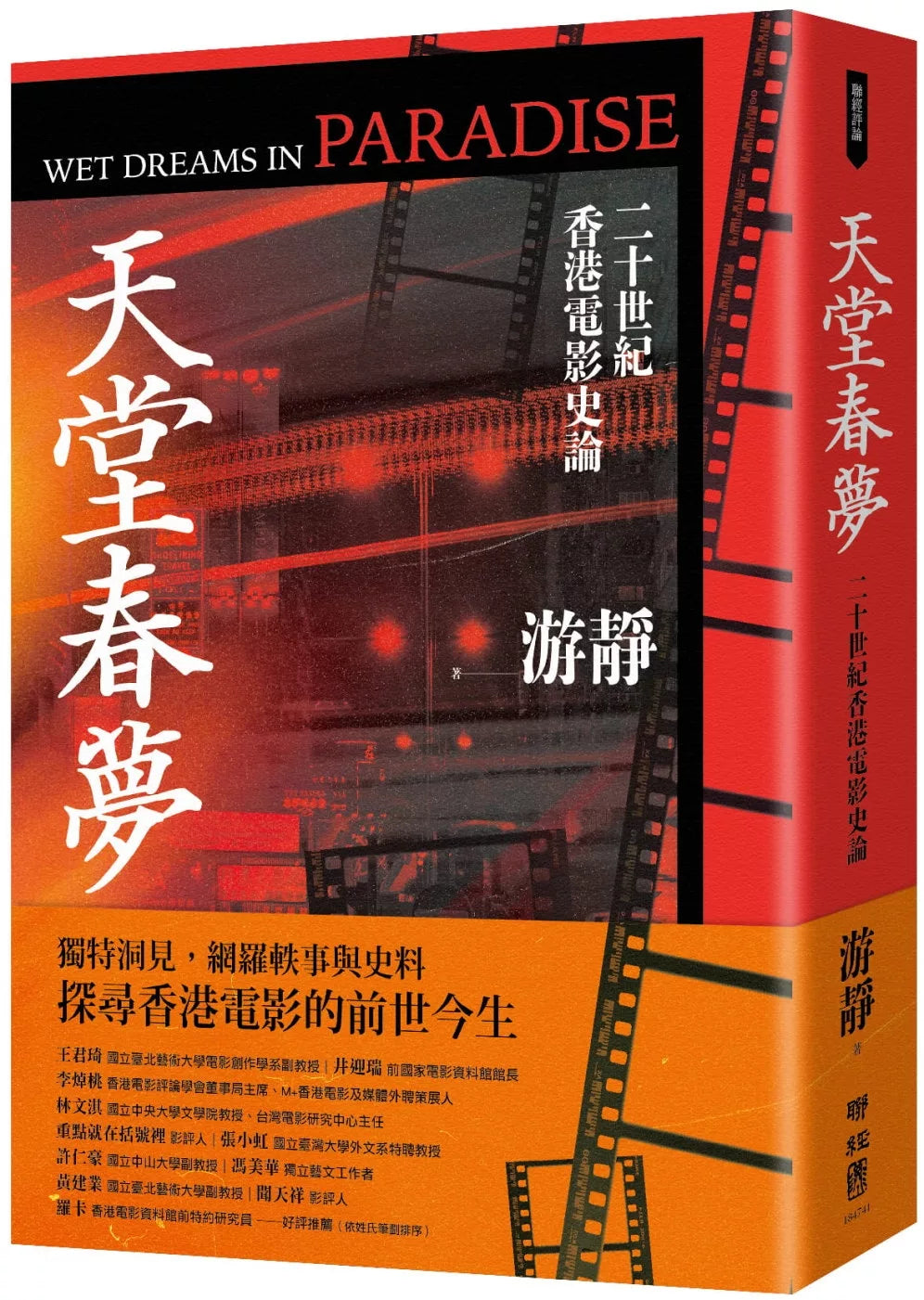1
/
of
1
Paradise Dream
Paradise Dream
Quiet
Regular price
$32.99 USD
Regular price
Sale price
$32.99 USD
Unit price
/
per
Low stock
Couldn't load pickup availability
About Book
About Book
Movies are witnesses to the changing times!
This book retraces the cultural context of Hong Kong from the 1920s to the 1990s.
Constructing a historical perspective on cultural politics in Hong Kong films,
Providing different understandings of Hong Kong yesterday and today.
The author carefully combs through a wealth of original data, weaving between case studies of individual films, filmmakers' own narratives, and analysis of the political context of time and space. Between macro-history and micro-history, discussing both Chinese and Cantonese films, he meticulously outlines the brilliant light and shadow of Hong Kong over the past century, and discerns the accidental and inevitable traces of history, breaking new ground in the study of Chinese-language films, colonial and Cold War studies, and Hong Kong culture. He also raises key questions and explores:
▎Reflections on Hong Kong serve as a resource to help reflect on the history of other Chinese-speaking cultures.
▎As the dream factory of the Chinese-language film world, what are the unique contributions of Hong Kong films?
▎How is Hong Kong film history closely related to literary history?
Hong Kong films have become an important venue for the powerless and the common people to vent their anxieties.
Bruce Lee's selfless dedication is a legendary figure in Hong Kong.
▎How have Hong Kong's mainstream moral values been renovated and rebuilt?
▎How did the “Great Cold War” and the “Little Cold War” affect the development of Hong Kong films?
How does Hong Kong film history simultaneously bear witness to the trajectory of colonial governance and the cultural Cold War?
▎How does capitalist modernity transform sexual/gender relations, and how do erotic films express anti-colonial sentiments?
How do New Wave films question Hong Kong’s position at the forefront of the Cold War?
Is comedy the manifestation of the Hong Kong dream? Does nonsensical comedy reveal the oppression of the times and the backlash of Hong Kong's subjectivity?
By reviewing Hong Kong film history, we can further reflect on the familiar films, characters, gender roles, cultural history and its formation, and appreciate how today's Chinese and even global popular culture still draws lessons from this vast and profound historical heritage.
This book retraces the cultural context of Hong Kong from the 1920s to the 1990s.
Constructing a historical perspective on cultural politics in Hong Kong films,
Providing different understandings of Hong Kong yesterday and today.
The author carefully combs through a wealth of original data, weaving between case studies of individual films, filmmakers' own narratives, and analysis of the political context of time and space. Between macro-history and micro-history, discussing both Chinese and Cantonese films, he meticulously outlines the brilliant light and shadow of Hong Kong over the past century, and discerns the accidental and inevitable traces of history, breaking new ground in the study of Chinese-language films, colonial and Cold War studies, and Hong Kong culture. He also raises key questions and explores:
▎Reflections on Hong Kong serve as a resource to help reflect on the history of other Chinese-speaking cultures.
▎As the dream factory of the Chinese-language film world, what are the unique contributions of Hong Kong films?
▎How is Hong Kong film history closely related to literary history?
Hong Kong films have become an important venue for the powerless and the common people to vent their anxieties.
Bruce Lee's selfless dedication is a legendary figure in Hong Kong.
▎How have Hong Kong's mainstream moral values been renovated and rebuilt?
▎How did the “Great Cold War” and the “Little Cold War” affect the development of Hong Kong films?
How does Hong Kong film history simultaneously bear witness to the trajectory of colonial governance and the cultural Cold War?
▎How does capitalist modernity transform sexual/gender relations, and how do erotic films express anti-colonial sentiments?
How do New Wave films question Hong Kong’s position at the forefront of the Cold War?
Is comedy the manifestation of the Hong Kong dream? Does nonsensical comedy reveal the oppression of the times and the backlash of Hong Kong's subjectivity?
By reviewing Hong Kong film history, we can further reflect on the familiar films, characters, gender roles, cultural history and its formation, and appreciate how today's Chinese and even global popular culture still draws lessons from this vast and profound historical heritage.
Publication Date
Publication Date
2024-05-02
Publisher
Publisher
聯經
Imprint
Imprint
Pages
Pages
528
ISBN
ISBN
9789570872965
share

